Enjoying Receptions of Athenian Tragedy
November 2, 2014
Larissa Ransom, who is studying for an MA in Classical Literature, has recently seen Pilot Theatre’s Antigone, National Theatre Live’s Medea and Broadway Theatre Archive’s Antigone. Here she muses on how this has changed her thinking about Greek tragedy… It is commonly believed that much of a book is lost when turned into a …
Tig, You’re It
October 17, 2014
Lynn Fotheringham, Director of the Centre for Ancient Drama and its Reception (based in the Classics Dept at Nottingham University), reviews Pilot Theatre’s current production of Antigone. Pilot Theatre’s production of Sophocles’ Antigone (in a new version by Roy Williams) came to the Lakeside in the same week that we were covering screen-versions of Greek …
A Herculean Achievement: The Twelve Labours of… Vladimir Putin
October 12, 2014
Esther Eidinow reports on an intriguing use of ancient Greek myth… Herakles, Hercules, Melqart… Putin: a celebration of the Russian leader’s achievements put Greek myth back on the map last week. An exhibition of pictures, organised by a Facebook group of Putin’s supporters, showed the President engaged in Herakles’ different tasks—each repurposed to represent a …
Greek for the Globe
September 21, 2014
Requests for translation into ancient Greek are understandably rare. But one was passed on to Oliver Thomas recently from a friend-of-a-friend at the Globe Theatre. For their production of Julius Caesar the Globe’s creative team wanted to mark the three main deaths (those of Caesar, Brutus and Cassius) by adding a small female chorus of …
Classics and the First World War: ‘Stand in the trench, Achilles’
July 13, 2014
A hundred years since the summer of 1914: people’s minds are turning to the First World War. I thought it might be of interest to spend a little time here drawing attention to some of the various ways in which this war was experienced, described and commemorated in connection with Classics. This poem was composed …
Simaetha revisited (1)
July 4, 2014
How silly is it to use a parody or joke to flag up features on an ancient text? In my post Simaetha’s letter, I provided a letter to an agony aunt, as if written by Simaetha, the speaker of Theocritus 2. This poem (a favourite of mine, which I teach as part of the first …
Simaetha’s letter
June 7, 2014
Strange things happen during the marking period… In between thinking about the first year literature course and whether I should have included more Hellenistic poetry, and looking at m’learned colleague Esther Eidinow’s ancient solutions to modern problems on this blog, I somehow came up with this: an appeal for a modern solution to an ancient …
CA report: Legacies of Greek Political Thought in America
April 28, 2014
CA conference: Legacies of Greek Political Thought in America Nottingham PhD student John Bloxham reports on a panel at the recent CA conference in Nottingham. For a postgraduate student, of a nervous temper, being asked to convene a panel was cause for a little anxiety. But with the panel taking place at the …
Roman noses
April 25, 2014
Mark Bradley sniffs out the significance of noses for Romans and others. Go back a hundred years or so, and well-to-do men and women in Berlin could be very conscious about their nose-shape. Anyone who had a potato nose, saddle nose or duckbill nose, or one that was wide, pointy, long, hook or slant had good …
Martial and first world problems
March 17, 2014
The first world problem meme might seem a relatively recent invention but the late first-century AD poet Martial was already playing with the idea. Some examples of #firstworldproblems: ‘Just got a splinter in my finger from an avocado stone. Guacamole injury.’ ‘No shiraz so had to use merlot in the beef bourguinon.’ featured here. More …

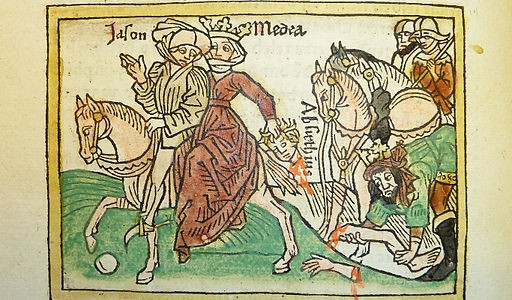
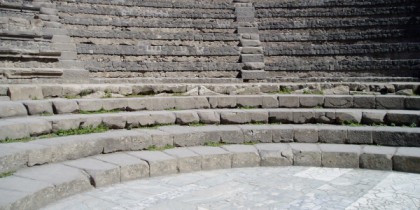

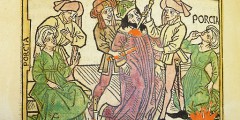
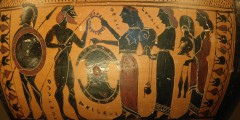
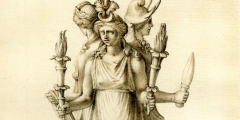
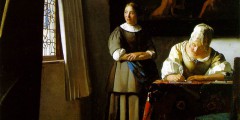
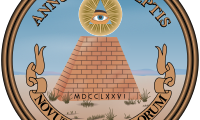


Recent Comments